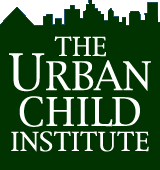 Perceptions from The Urban Child Institute
Perceptions from The Urban Child Institute
Graduating to a Better Memphis
Graduation is always an exciting time, and it was made even more special this year with President Obama’s commencement speech at Booker T. Washington High School as the national spotlight shone on Memphis.
There are many lessons to be learned from the turnaround in graduation rates at Booker T. Washington High School, but the ones that stood out for us were these:
1) Too many Memphis children start life as underdogs; President Obama said that the Booker T. Washington High School graduates have “always been underdogs,” because of their stressful family situations and poverty, and Memphis has 59,000 children in similar conditions
2) One person can make a difference, as demonstrated by Booker T. Washington High School Principal Alisha Kiner who increased graduation rates from 55% to 82% in four years, so all of us should advocate for children in each of our spheres of influence
3) Demographics are not destiny, as proven by the success of the Booker T. Washington High School students, but Memphis demographics are a detour in life that too many children cannot navigate
As fragile as the lives of too many Memphis children are, so is the future of Memphis itself, because if present trends are not improved, Memphis will find it hard to compete in an increasingly complex economy where knowledge, technology, and reasoning are the keys to success.
In our definitive “Class of 2025” report, the consequences could not be more graphic.The 15,167 members of that class were born in 2006, and more than half of them were born into families living below the poverty line, and as a result, they lack access to resources most of us would see as basic. Sixty percent of them live with a single parent at a time when two working parents are the norm and when family income and educated parents strongly influence a child’s chances for success.
In every school district in the U.S., including Memphis City Schools, low-income students trail children from more affluent families. Unequal starts in life follow children through schools. In the Class of 2025, if nothing changes, 7,825 students will lack access to vital resources; 2,974 will fail a grade, 4,045 will drop out of high school, and 3,991 will be arrested.
Children born to teenage parents face the most daunting odds.They are many times more likely to live in poverty and to have poor health, and as adults, they are more likely to engage in antisocial behavior, face unemployment, and become young parents themselves.
The good news is that we know what works: interventions in the lives of at-risk children, particularly between birth and three years old. The bad news is that we have not yet begun to get serious about the interventions that give the students in the Class of 2025 their best chances for graduation and in life – and Memphis its best chances for the future.
Targeted interventions for young children, particularly from birth to their third birthdays when their brains are reaching 80% of their adult size, can make a profound difference in the lifetime outcomes of poor and low-income children. Best of all, for every $1 spent on interventions, there is $6 in savings and benefits.
As we celebrate the success of the graduating class of Booker T. Washington High School, the best and lasting tribute we can pay to them is to give the Class of 2025* its best chance to attract national attention for proving that any child can succeed, if given the chance.
These are our perceptions at The Urban Child Institute.
*What does the future hold for the youngest Memphians? What difference would it make if we were to invest today in high quality interventions designed to promote the well-being of young children and their families?
This presentation reviews the most recent data available on children born in Shelby County, and offers projections based on a wide range of social scientific and epidemiological investigations. You can access the pdf file of “The Class of 2025” here.


